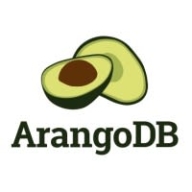

MongoDB Atlas and ArangoGraph compete in the cloud database services market, each providing distinct advantages. MongoDB Atlas leads with its extensive ecosystem and broad support, while ArangoGraph is notable for its multi-model database capabilities and flexible schemas, making it ideal for complex applications.
Features: MongoDB Atlas provides automatic sharding, integrated backups, and a wide range of integrations, enhancing scalability and versatility. It supports diverse data scenarios efficiently. ArangoGraph allows multiple data models, such as graph and document, within a single instance, offering flexibility in handling diverse datasets effectively.
Ease of Deployment and Customer Service: MongoDB Atlas is known for a straightforward deployment process and responsive technical support, ensuring a smooth setup experience. ArangoGraph integrates well with existing infrastructure through its robust deployment model. However, its customer support, while adequate, isn't as immediate as that of MongoDB Atlas. MongoDB Atlas is perceived as more accessible due to its intuitive nature compared to ArangoGraph's comprehensive setup process.
Pricing and ROI: MongoDB Atlas provides a flexible pricing model aligned with usage, ensuring a competitive return on investment. ArangoGraph is seen as cost-effective for multi-model database needs, though with potentially higher initial setup costs. MongoDB Atlas offers a predictable cost-benefit ratio, while ArangoGraph yields significant ROI in projects requiring its specialized features.

ArangoGraph supports many cloud deployment regions across the 3 main cloud providers, and if you need on-prem for other use-cases, you can always deploy self-managed too, with seamless migration from fully managed to on-prem.
MongoDB Atlas stands out with its schemaless architecture, scalability, and user-friendly design. It simplifies data management with automatic scaling and seamless integration, providing dynamic solutions for diverse industries.
MongoDB Atlas offers a cloud-based platform valued for its seamless integration capabilities and high-performance data visualization. It features advanced security options such as encryption and role-based access control alongside flexible data storage and efficient indexing. Users benefit from its robust API support and the ability to manage the platform without an extensive setup process. Feedback suggests improvements are needed in usability, query performance, security options, and third-party tool compatibility. While pricing and support services could be more economical, there is a demand for enhanced real-time monitoring and comprehensive dashboards, as well as advanced containerization and scalability options supporting complex database structures.
What are the key features of MongoDB Atlas?In healthcare and finance, MongoDB Atlas manages payment transactions and facilitates real-time analytics, powering SaaS solutions and storing large volumes of user data. It enhances scalability, performance, and security for cloud hosting, IoT integrations, and Node.js environments, widely favored for its flexibility and capability to support microservices.
We monitor all AWS Marketplace reviews to prevent fraudulent reviews and keep review quality high. We do not post reviews by company employees or direct competitors. We validate each review for authenticity via cross-reference with LinkedIn, and personal follow-up with the reviewer when necessary.